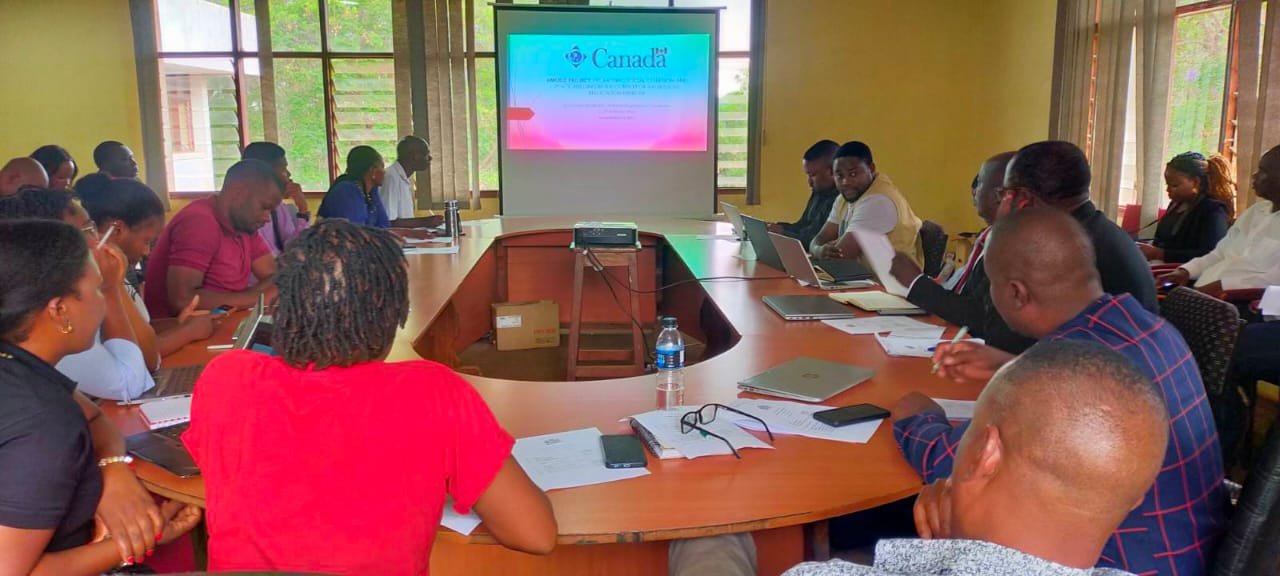By Vincent Gunde
The UN Women says research has indicated that the gender digital divide in Africa continues to widen as most of the new internet users since the year 2013 have been men, observing that women in developing countries are 14 percent less likely to own a mobile phone and have internet access than men.
The organization said according to the Malawi Multiple Indicator Cluster Survey (2019-2020) more men use the internet compared to women, men are three times more likely to possess computer skills than women, and internet use is high for those with higher education and lower for those with none or pre-primary education.
It said the Sub-Saharan region remains amongst the widest gender gaps in digital usage saying digital literacy in Malawi is extremely low, especially for women and girls in rural areas calling for the need to empower women and girls to use and create technology.

Presenting the Malawi Girls can code too project at a meeting with the District executive committee (Dec) in Dowa, UN Women said the project is aimed at reducing the digital gender divide and economically empower girls and young women through increased digital skills, access and technology adoption by 2026.
The project will target 6 Education Divisions, 8 districts including Dowa, 20 secondary schools (both urban and rural), 6 institutions of higher learning (public and private institutions such as Universities and Technical Colleges and will work in collaboration with Ministry of Education through the Directorate of Science, Technology and Innovation and Ministry of Gender. Community Development and Social Welfare, with funding from the Embassy of Ireland.
Speaking on behalf of UN Women Country Representative, Ann Lipipa Chikoko said in Dowa, the project will target Dowa, Natola Secondary Schools and Mvera CDSS through equipping Malawian girls with digital literacy and entrepreneurship skills and stimulating girls to become ICT professionals, among others.
The project will benefit 7,500 girls and boys aged 14-25, with or without ICT background and link girls who participate in the coding camps to opportunities in Tech clubs, Tech companies and other actors on coding and ICT sectors.
She said among the key interventions, the project will provide tablets with pre-loaded lessons, intensive training through bootcamps on coding, entrepreneurship, gender and other relevant topics, as well as conducting, media campaigns.
“The project will conduct regional and national bootcamps to encourage competition and showcasing solutions developed by the beneficiaries,” said Lipipa-Chikoko.
In his remarks, Acting District Director of Agriculture and Natural Resources for Dowa Martin Kamlomo, welcomed the project into the district urging partners and Government sectors to support it for the intended outcomes to be achieved in the district.



